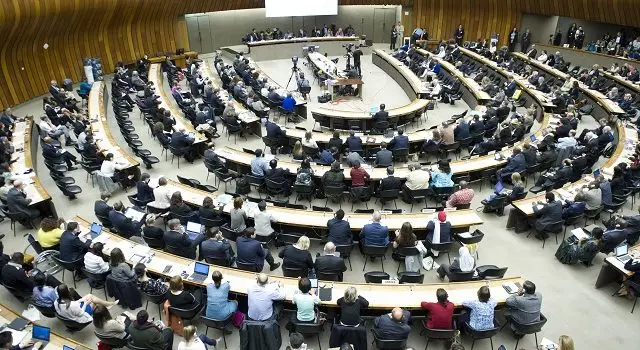This is a statement made at the WHO Executive Board Meeting (EB154) on Agenda Item 24.3 coordinated by NCD Alliance and supported by the World Heart Federation and other global health organizations.
Distinguished delegates,
We welcome the draft GPW14 outline, including the proposed strategic objectives and associated outcomes addressing contextual challenges of the climate crisis, wider determinants of health and risk factors, inequitable burden of out-of-pocket health expenditure, critical gaps in health and care workforce and financing, as well as specifically addressing noncommunicable diseases (NCDs), including mental health and neurological conditions, that represent a significant gap in delivering Universal Health Coverage (UHC).
We however express concern that participation of civil society and people living with health conditions are not planned in further consultation on GPW14, including the process of refining the WHO Result Framework. We make the following recommendations:
● Acknowledge people living with health conditions, such as NCDs, including mental health and neurological conditions, are especially vulnerable to health emergencies, including during pandemics and in humanitarian settings;
● Reflect the need for countries to increase their health spending and encourage the establishment of specific targets for investment in health that can help reduce the UHC service coverage gap and out-of-pocket expenditure, promote health equity, and better align health spending with national disease burdens;
● Member states support full, sustainable and predictable financing of WHO’s budget for 2025-28, including sufficient funding and budgeting flexibility for delivery of the NCD-related programme of work;
● Include an indicator to monitor quality defining clinical and patient centric outcomes for NCDs services not captured under the UHC service coverage index tracer indicators and support the collection of disaggregated data by age, disease, gender, disability, geographical region, and socioeconomic groupings that can inform equity-focused responses across the goals of promoting, providing and protecting health;
● Include reference to Appendix 3 of the Global NCD Action Plan under WHO’s work on the determinants of health and health promotion;
● Reflect the importance of meaningful engagement of people living with a wider range of health conditions, such as NCDs, including mental health and neurological conditions, in the development, implementation and monitoring of policies across the GPW14 goals.
Thank you.
Statement coordinated by:
NCD Alliance (NCDA)
Statement supported by:
FDI World Dental Federation (FDI)
HelpAge International (HelpAge)
International Federation of Aging (IFA)
International Pharmaceutical Federation (FIP)
Multiple Sclerosis International Federation (MSIF)
The Royal Commonwealth Society for the Blind – Sightsavers (Sightsavers)
World Cancer Research Fund International (WCRF International)
World Heart Federation (WHF)
World Obesity Federation (WOF)
Worldwide Hospice Palliative Care Alliance (WHPCA)


